Ditapis dengan
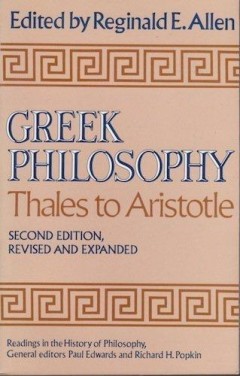
Greek Philosophy: Thales to Aristotle
- Edisi
- Second Edition
- ISBN/ISSN
- 0029006600
- Deskripsi Fisik
- viii + 440 pg.; 21 cm.
- Judul Seri
- -
- No. Panggil
- 180 GRE g
- Edisi
- Second Edition
- ISBN/ISSN
- 0029006600
- Deskripsi Fisik
- viii + 440 pg.; 21 cm.
- Judul Seri
- -
- No. Panggil
- 180 GRE g
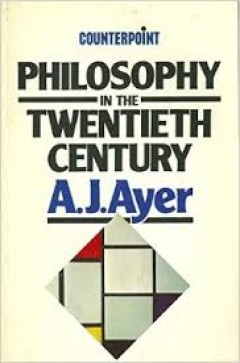
Philosopohy in the Twentith Century
- Edisi
- -
- ISBN/ISSN
- 0041000447
- Deskripsi Fisik
- viii + 280 pg.; 19,5 cm.
- Judul Seri
- -
- No. Panggil
- 190.904 AYE p
- Edisi
- -
- ISBN/ISSN
- 0041000447
- Deskripsi Fisik
- viii + 280 pg.; 19,5 cm.
- Judul Seri
- -
- No. Panggil
- 190.904 AYE p

The Principle of Hope Volume 1
The Principle of Hope is one of the great works of the human spirit. It is a critical history of the utopian vision and a profound exploration of the possible reality of utopia. Even as the world has rejected the doctrine on which Bloch sought to base his utopia, his work still challenges us to think more insightfully about our own visions of a better world. The Principle of Hope is publishe…
- Edisi
- -
- ISBN/ISSN
- 0631133879
- Deskripsi Fisik
- xxxiii + 447 pg.; 23,5 cm.
- Judul Seri
- -
- No. Panggil
- 193 BLO p 1
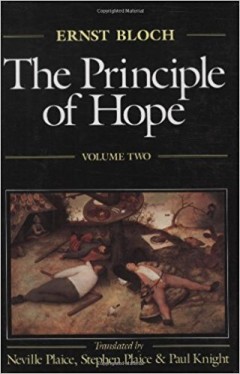
The Principle of Hope Volume 2
The Principle of Hope Volume 2
- Edisi
- -
- ISBN/ISSN
- 0631133879
- Deskripsi Fisik
- viii + 473 pg.; 23,5 cm.
- Judul Seri
- -
- No. Panggil
- 193 BLO p 2
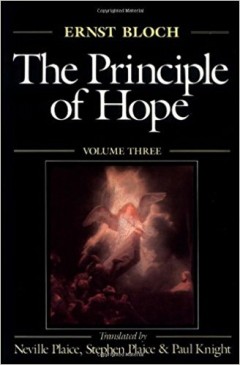
The Principle of Hope Volume 3
The Principle of Hope is one of the great works of the human spirit. It is a critical history of the utopian vision and a profound exploration of the possible reality of utopia. Even as the world has rejected the doctrine on which Bloch sought to base his utopia, his work still challenges us to think more insightfully about our own visions of a better world. The Principle of Hope is publishe…
- Edisi
- -
- ISBN/ISSN
- 0631133879
- Deskripsi Fisik
- viii + 493 pg.; 23,5 cm.
- Judul Seri
- -
- No. Panggil
- 193 BLO p 3

The Meeting of East and West : An Inquiry Concerning World Understanding
The impact of Eastern thought on the culture of the United States and Western Europe is now seen in the spread of Buddhism, meditation, martial arts, yoga, oriental art, and hundreds of other Asian imports. F. S. C. Northrop in this perceptive work was one of the first Americans to grasp the full significance of Eastern culture, its distinctive features, and its potential for influencing the re…
- Edisi
- First Edition
- ISBN/ISSN
- -
- Deskripsi Fisik
- xxii + 531 pg.: ils.; 21 cm.
- Judul Seri
- -
- No. Panggil
- 180
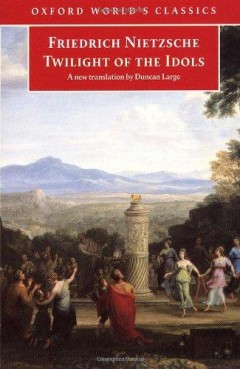
Oxford World's Classics : Twilight Of The Idols or How To Philosophize With a…
Twilight of the Idols. Nietzsche's own unabashed appraisal of the last work intended to serve as a short introduction to the whole of his philosophy, and the most synoptic of all his books, bristles with a register of vocabulary derived from physiology, pathology, symptomatalogy and medicine. This new translation is supplemented by an introduction and extensive notes, which provide close analys…
- Edisi
- -
- ISBN/ISSN
- 0192831380
- Deskripsi Fisik
- xlii + 124 pg.; 20 cm.
- Judul Seri
- -
- No. Panggil
- 179.3 NIE t
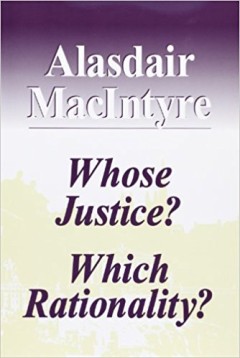
Whose Justice? Which Rationality?
Whose Justice? Which Rationality?, the sequel to After Virtue, is a persuasive argument of there not being rationality that is not the rationality of some tradition. MacIntyre examines the problems presented by the existence of rival traditions of inquiry in the cases of four major philosophers: Aristotle, Augustine, Aquinas, and Hume.
- Edisi
- -
- ISBN/ISSN
- 0268019428
- Deskripsi Fisik
- xi + 410 pg.; 23 cm.
- Judul Seri
- -
- No. Panggil
- 172 MAC w
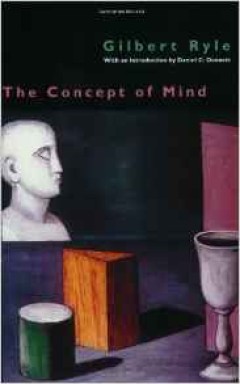
The Concept of Mind
This now-classic work challenges what Ryle calls philosophy's "official theory," the Cartesians "myth" of the separation of mind and matter. Ryle's linguistic analysis remaps the conceptual geography of mind, not so much solving traditional philosophical problems as dissolving them into the mere consequences of misguided language. His plain language and esstentially simple purpose place him in …
- Edisi
- -
- ISBN/ISSN
- -
- Deskripsi Fisik
- 316 pg.; 19,5 cm.
- Judul Seri
- -
- No. Panggil
- 128.2 RYL c

The Philosophy of Martin Buber
- Edisi
- First Edition
- ISBN/ISSN
- -
- Deskripsi Fisik
- xx + 811 pg.; 24 cm.
- Judul Seri
- -
- No. Panggil
- 193 PHI p
- Edisi
- First Edition
- ISBN/ISSN
- -
- Deskripsi Fisik
- xx + 811 pg.; 24 cm.
- Judul Seri
- -
- No. Panggil
- 193 PHI p
 Karya Umum
Karya Umum  Filsafat
Filsafat  Agama
Agama  Ilmu-ilmu Sosial
Ilmu-ilmu Sosial  Bahasa
Bahasa  Ilmu-ilmu Murni
Ilmu-ilmu Murni  Ilmu-ilmu Terapan
Ilmu-ilmu Terapan  Kesenian, Hiburan, dan Olahraga
Kesenian, Hiburan, dan Olahraga  Kesusastraan
Kesusastraan  Geografi dan Sejarah
Geografi dan Sejarah